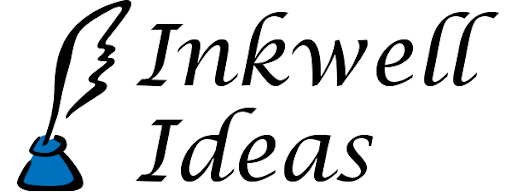Worldbuilding 101: Do What Is Essential and Inspiring
A few years back we wrote a “Worldbuilding: Where to Start” article and this article builds on and expands on that article. The key points I’ve learned/reinforced since that article are:
- Spend time detailing what’s essential for the beginning of your campaign.
- Also add detail where you’re inspired/where you have cool/fun ideas.
- Include your players’ interests as you build the world.
- It is OK to not detail aspects of your world that aren’t essential & they can change.
Note: You can also get this article as a video.
Spend Time Detailing What’s Essential
There are some things you’ll almost definitely need for your campaign:
- A starting town/village. Adjacent towns/villages can be just names or a bit more.
- An adventure location (a dungeon/cave to explore or more detail in the town or castle if the initial focus is there) & its denizens & their goals. Perhaps create outlines for a couple of locations and rumors to give the players more agency. Detail them as needed.
- A bare minimum about the initial kingdom: Who rules, are they good/just, what is the army/police like, what are the people like, how do the people live, etc.
- A bare minimum about any adjacent kingdoms.
Even this list can be pared down depending on the situation.
Add Detail Where You’re Inspired
If you’ve got a great idea for some aspect of the campaign, then absolutely detail that! Do you have a unique villain? Great! Write him or her up, their minions, base, and motivations. Do you want to detail the whole world map? Go for it. Do you love making fantasy religions and want to write up five different ones for your world with one to 20 gods each? You can do that.
Do what you enjoy. As you’ll see below, there are always ways to revise this work if you need to.
Include Your Players’ Interests
The only caveat is to keep in mind what your players want and enjoy as you create. You can even include them when creating the campaign as part of an expanded “session 0”. You can’t have a collaborative world without others.
It is OK to Not Detail Everything/Things Can Change
Building a world is a lot of (mostly fun) work. But you’ll almost definitely have some aspect of the world that you don’t feel inspired to describe. That’s OK. You don’t have to describe it all–or even half of it. Just focus on what the PCs would know and what is key to your planned campaign.
What if you do detail everything about the world and want to change it? Or even if you only detailed a bit more than the essentials, but one of those extra things needs to be changed? You can change it! There are two easy ways to explain any changes you want to make:
Things Change
The world is always in flux. At any given time something can happen to change the kingdoms, geography, religions, cultures, and more.
Do you need to make that adjacent friendly kingdom evil? Easy: Perhaps the leader was overthrown. Maybe a new vizier with a dubious patron is now controlling the king.
Does the geography of the area not match what you need? An earthquake, tsunami, major flood, volcano, and more can radically change a region just to list a few ideas. And with magic and gods active in the world, anything is possible.
Not happy with your Pantheon? Maybe a war was settled and gods died, or agreed to move on to a new plane of existence. Perhaps a spiritual realization fundamentally changed a religion.
Cultures can change over time or even abruptly. For example, a plague can wipe a large portion of people out, and those who remain may have completely different taboos and practices based on the perceived cause of the plague.
Unreliable Narrative
The other way to explain major changes to your world is similar to the “Unreliable Narrative” term from literature. This term refers to a narrator telling us a story only from their point of view–so they have an agenda. Or the narrator is passing on a story they heard, but didn’t verify.
To apply this concept to cartography, consider who made the maps the PCs have and the technology available. Unless your campaign is set in modern times or later, it is completely realistic that the cartographer was guessing at the size of a distant landmass that he didn’t circle. (Was it an island or a whole continent?) And many maps were combinations of maps that others made–mistakes may have been passed along.
For religion, consider how many different ways a real world religious text can be twisted to support any agenda–let alone how accurate the stories in the writings may be.
For cultural issues or knowledge about a neighboring or far off kingdom, the game of telephone (pass a message from one person to another and after a few/several hops it is completely different) tells us it is easy to believe what the PCs know about that other culture or kingdom may only be half true. So when they visit it, the kingdom may be much different than expected.
Summary
It is best to focus your worldbuilding time on what is essential to the campaign, but let yourself indulge where you have a great idea or feel inspired. Include the players’ desires (or even include them) in your worldbuilding exercise. If you need to change something (the map, a religion, a kingdom, a culture, a city) there are plenty of story/event-based ways to explain the change or consider that the PCs were misinformed.
